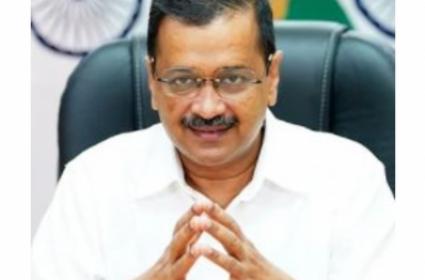Is The 'Wind Of Change' Compatible With Punjab?

At present, the Assembly elections are being held in five states of India including Punjab. The Punjab Assembly elections are going to be held on 20th February. The election campaign is at its peak. The equation is changing day by day in Punjab. While various political parties are trying their luck in Punjab elections, Aam Aadmi Party is also contesting in four state assembly elections including Punjab. Aam Aadmi Party's main focus is Punjab elections. With the advent of the Aam Aadmi Party in Punjab, the hardened two party systems of Shiromani Akali Dal-BJP alliance and Congress has been challenged in Punjab and this has made the competition to three corners. In the Assembly elections of 2017, the rise of the Aam Aadmi Party was only in Malwa but in the current elections, there is a trend that Aam Aadmi Party is making its mark in Majha and Doaba as well.
Looking at the enthusiasm among the voters of Punjab towards the Aam Aadmi Party, from the trends so far, it seems that a significant section of the electorate is determined to bring about a ‘change’ based on the Delhi model in Punjab. However, it is difficult to say whether they are bringing these to teach a ‘lesson’ to the traditional parties or whether they are influenced and convinced by the issues of the Delhi model.
Since the formation of the Aam Aadmi Party, Punjab is the only state outside Delhi where the Aam Aadmi Party has received the highest response and support. The Aam Aadmi Party has won four MPs from Punjab alone in the 2014 Lok Sabha election out of its total of candidates 434 all over India. The Aam Aadmi Party had won 20 seats in the Assembly elections of 2017, beating the Shiromani Akali Dal, the oldest traditional regional party in Punjab. Even during the current Assembly elections, AAP Supremo Arvind Kejriwal has claimed that the Aam Aadmi Party will form a strong government with more than 80 seats in these Assembly elections of Punjab.
The basis of the Aam Aadmi Party's election campaign in Punjab is the Delhi model. Along with the Delhi model, the Aam Aadmi Party is continuously exposing the 75 years old poor performance of two traditional parties Akali Dal and Congress alternatively in Punjab and claiming to improve the condition of hospitals, schools, transport, and other public services. Based on this, the Aam Aadmi Party is demanding an opportunity (ikk mauka) for itself from the electorates of Punjab and in return is claiming to bring a change to Punjab based on the Delhi model.
But the question here is how appropriate is Kejriwal's Delhi model seen as a vehicle of ‘change’ for a state like Punjab? The performance of the Delhi model or the Aam Aadmi Party so far proves that the party has distanced itself from many ideological issues such as caste, religion, and minorities and trying to present itself as a non-ideological party. The Aam Aadmi Party, on the other hand, considers itself a development-centric party with minor improvements in issues directly related to the people such as education, health, water, and transport. On the other hand, the stands of the Aam Aadmi Party on the issues like federalism, centre-state relations, caste discrimination, discrimination with religious minority, CAA, Delhi riots, etc. have never been different from that of the BJP in India.
Punjab is a state with its own unique characteristics. It is not like the national capital of Delhi. Apart from important issues like education, health, drugs, unemployment, etc., the issue of Punjabi language; the issue of Punjabi speaking areas in other states; the issue of Punjab’s waters; the
issue of Chandigarh; issues of Sikh religious minorities like the release of Sikh political prisoners, punishment of perpetrators of Sikh genocide, implementation of Anand Marriage Act, punishment of perpetrators sacrilege, etc. are important issues of Punjab. In addition, 33% of the dalit population in Punjab has its own issues. Under the Punjab Village Common Land (Regulation) Act, 1961, reserved 33% of land for Dalits in Panchayat land is to be taken up. To obtain their due share in the common land, Dalits have been mobilized under the various organizations in almost a dozen districts of Punjab, and in many cases, they succeed in asserting their share in the common land of the village. As a result, there have been clashes between the Jatt Sikh community and Dalits in Punjab in many places. Aam Aadmi Party's Chief Ministerial candidate Bhagwant Mann's own Lok Sabha constituency of Sangrur has witnessed hundreds of such incidents on which Bhagwant Mann has never broken his silence.
Ignoring all these issues, Aam Aadmi Party supremo Arvind Kejriwal is constantly emphasizing the security of Punjab during his election campaign in Punjab and is projecting the image of Punjab as an insecure border state. Though the wind of ‘change’ being blown by the Aam Aadmi
Party is blowing in Punjab, some doubts about the Aam Aadmi Party are rising in a section of the conscious electorate. As the saying goes, the Aam Aadmi Party is the BJP's B team. The media seems to be playing a significant role in this.
Congress has recently held a press conference and accused the Aam Aadmi Party of colluding with the BJP. In which he has presented many
facts to the media. In which he has claimed to expose AAP's alliance with BJP and Kejriwal's alliance with Modi from 2013 till now. The other big doubt is that Bhagwant Mann is just a face as the Chief Ministerial candidate to win the Punjab Assembly elections, while the real remote is in the hands of Kejriwal. But the remote change in Kejriwal's hands does not seem to be compatible with Punjab.
(Jaspreet Kaur, Research Scholar, from Punjabi University, Patiala, associated with Peoples Pulse, Research Organisation on Electoral politics.)




















